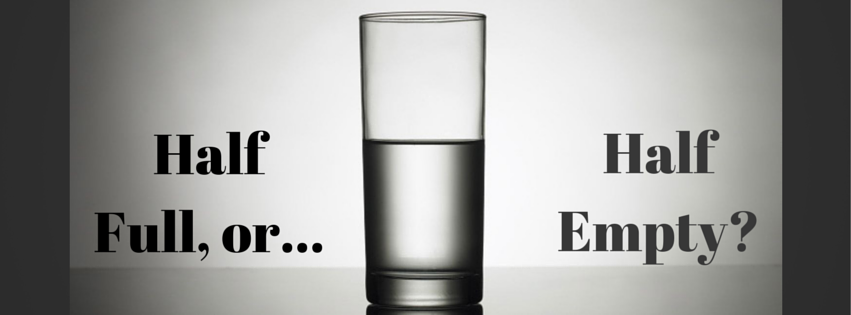Gratitude Vs. Fear: Will You Choose Scarcity or Abundance?
World-class mentor Michael Hyatt opened a recent blog post by asking a challenging question:
“When we see what others have, is our basic reaction to notice what we’re missing or express gratitude for what we have?”
Take a moment to reflect on your own experience. How do you react to the success or failure of those around you?
Mindset Matters
Hyatt's question is a different articulation of the eternal lunchroom dilemma: Is the glass half empty or half full? We've been taught that seeing the glass as half empty is the pessimist's worldview, and half full is the optimist's. I think there's a deeper way to look at the answer, and Hyatt does too. I think pessimism and optimism are the result of a worldview that emphasizes either scarcity or abundance.

If we approach the world from a mindset of scarcity, it impacts our responses in a variety of negative ways. Scarcity is the mindset of the scavenger or the hoarder. Think about it — when resources are perceived as scarce, we covet our resources and stockpile them for our own benefit. In a scarcity mindset, someone else's happiness or success becomes a threat to our own. If success exists in limited quantities, someone else's success means that there is now less success available to us. The glass is half empty, and every last drop must be guarded.
Researcher and human behavior expert Brené Brown addresses the “culture of scarcity” in her book, Daring Greatly. She writes,
“Worrying about scarcity is our culture’s version of post-traumatic stress. It happens when you’ve been through too much, and rather than coming together to heal (which requires vulnerability), we’re angry and scared and at each other’s throats.”
Abundance and Gratitude
The opposite of this is a mindset of abundance, which impacts our relationships in many positive ways. Abundance is the mindset of the philanthropist or the volunteer. When resources are perceived as abundant, we can freely share them with others and find joy in community.
In an abundance mindset, someone else's happiness or success is something to be celebrated. If success exists in abundance, another person's success is a sign of the possibility of our own success, rather than a threat to it. The glass is half full and meant to be shared!
I think Brown is right on when she asserts that this mindset is the result of “coming together to heal,” and it requires vulnerability. However, the greatest contributing factor to a mindset of abundance is gratitude.
As Hyatt writes on his blog,
“Regardless of our culture of perceived scarcity — or our individual circumstances — we all can point to assets, blessings, and gifts in our lives.
That’s why I say perceived scarcity. It’s not real… If we can see through the right lens, we have all been given more than we can possibly ask or imagine.
That lens is called gratitude, and it’s a lens that amplifies everything good in our lives instead of causing it to shrink to insignificance.“
I love this way of thinking about gratitude. If gratitude is a “lens,” then gratitude is something we can choose to view the world through. Just as I've recently written about approaching others with compassion, seeing the world with gratitude is a choice we can actively make for ourselves every morning and in every moment.
Choose Gratitude!
It's so easy to fall into a mindset of scarcity, to become guarded, possessive, or pessimistic. Instead, let's choose to see through the lens of gratitude and embrace the abundance of the world we live in. Just as A Course in Miracles teaches us that our disconnected-ness is a myth and we are all one, gratitude can open our eyes to the true bounty of the gifts that surround us. When we celebrate other's success and happiness, we don't diminish our own — we create even more!
For online Life Coaching with Ace Wagner go to www.StartTalking.io
